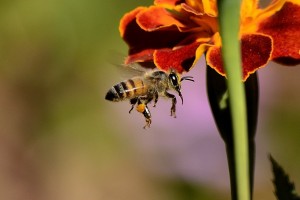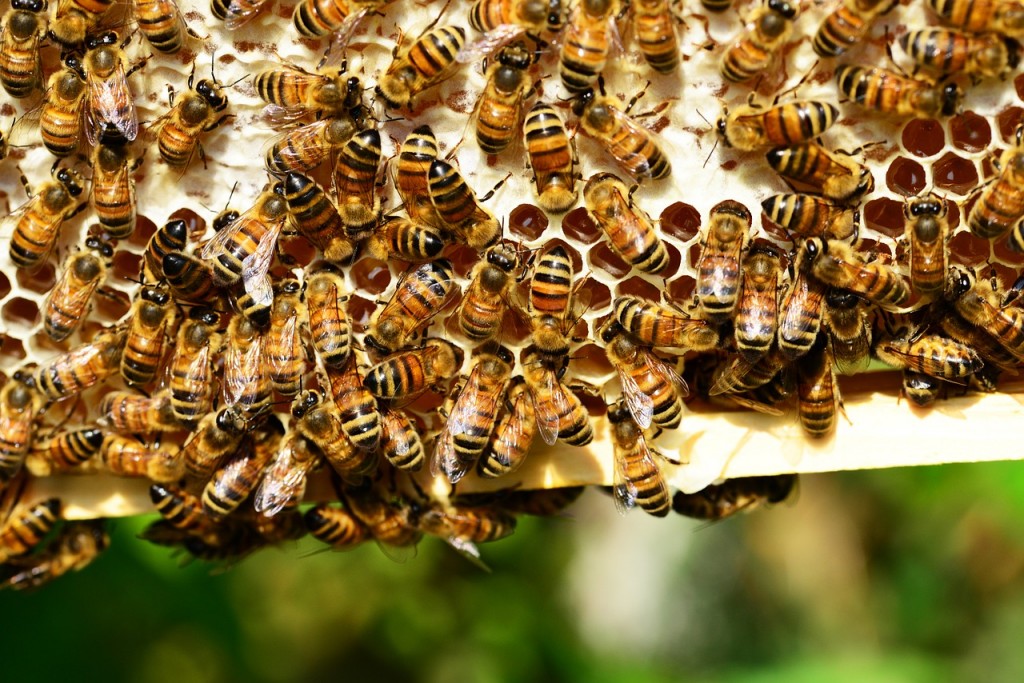 Bees are critical to the pollination of plants, and therefore, our food supply. If the insects were to disappear, the end result would be crop damage and not only a lack of food, but economic stability.
Bees are critical to the pollination of plants, and therefore, our food supply. If the insects were to disappear, the end result would be crop damage and not only a lack of food, but economic stability.
Luckily, scientists are working on a solution to our looming pollination problem, as bees continue to face threats such as pesticides and disease.
In a paper published in Chem, researcher Eijiro Miyako and his team look into how drones may one day be able to solve our pollination woes. To draw their conclusions, they worked with an ionic liquid gel that could be placed on fibers. The idea was that the gel would collect pollen after it had been applied to the fibers. Once the fibers are attached to a drone, they had a pollinating “bee.”
“The global pollination crisis is a critical issue for the natural environment and our lives,” the authors wrote in their report. “The need to develop an innovative pollination tool that does not require time and effort to achieve pollination with a high success rate is urgent.”
To test their ionic gel and fibers, they placed them on a remote-controlled drone. Then, the drone was flown over the flowers of pink-leaved Japanese lilies. The researchers discovered that the fibers on the drone were able to pick up pollen and transfer it to other plants.
“We conclude that such [unmanned aerial vehicles] with functionalized vertically aligned animal hairs can be used for effective pollination of plants,” the authors wrote.
The Real Dangers Facing Bees
Bees have seen several threats as of late, ranging from disease to global warming. Recently, the U.S. Fish and Wildlife Service said it wanted to add the rusty-patched bumble bee to its endangered species list. However, the White House blocked the measure, and lobbyists against the Endangered Species Act celebrated the move.
Since the early 1990s, the rusty-patched bumble bee has seen its population drop by 90 percent. However, the overall bee population has been decreasing since this period as well – are we really doomed if the insects aren’t protected?
“This bee is one of the most critically endangered species in the country and we can save it — but not if the White House stands in the way,” Rebecca Riley, senior attorney for the Natural Resources Defense Council, told CBS News.
But with technology like drones, perhaps we still stand a chance.
Sources
Chechetka, Svetlana. Yu, Yue. Tange, Masayoshi. Miyako, Eijiro. “Materially Engineered Artificial Pollinators.” Chem. Published February 9, 2017.
Associated Press. “Trump admin delays protection for “endangered” bumblebees.” CBS News. Published Feb. 10, 2017.
